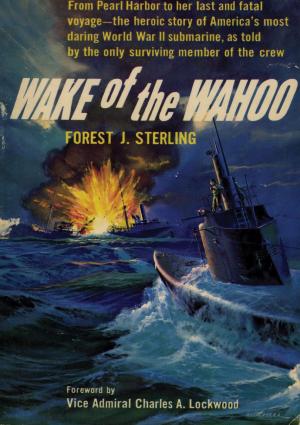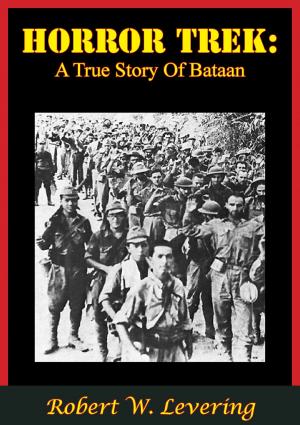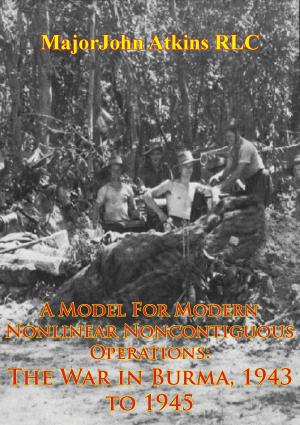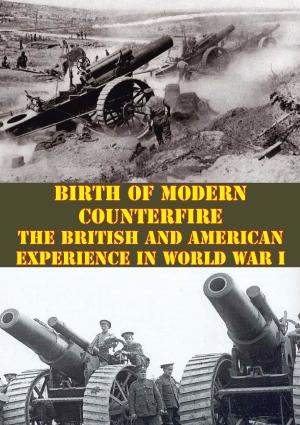Allenby, A Study In Greatness: The Biography Of Field-Marshall Viscount Allenby Of Megiddo And Felixstowe
Nonfiction, History, Military, World War I, Germany, British| Author: | Field-Marshal Earl Wavell | ISBN: | 9781786258182 |
| Publisher: | Verdun Press | Publication: | January 18, 2016 |
| Imprint: | Verdun Press | Language: | English |
| Author: | Field-Marshal Earl Wavell |
| ISBN: | 9781786258182 |
| Publisher: | Verdun Press |
| Publication: | January 18, 2016 |
| Imprint: | Verdun Press |
| Language: | English |
In this two-part biography, Field Marshal Wavell, charts the rise of the 1st Viscount Allenby, from a lowly cavalry lieutenant to the rank of Field Marshal.
Allenby was commissioned into the 6th Dragoons in 1880, well-liked by his contemporaries but never considered overly talented. However under fire and in contact with the enemy during the Boer War, Allenby’s talents began to come to the fore; tough and disciplined, he was rapidly promoted with each battlefield success. Afflicted by a rabid temper, which led to towering rages at subordinates, he was nicknamed “The Bull”.
When Europe descended into chaos and the horrors of the First World War in 1914, Allenby was given command of the only British cavalry brigade to be sent to France in 1914. The cavalry distinguished itself in the chaotic fighting of 1914, particularly at the First Battle of Ypres. As trench warfare removed any possibility of a war of movement, Allenby transferred to command of V Corps and then to lead Third Army. Allenby’s tactics including frequent counterattacks led to heavy casualties would lead to his transfer to Egypt. Allenby organised, planned and executed the campaign across Egypt and the Palestine that threw the Ottoman army back all the way Aleppo before the armistice in 1918. Allenby would stay on in Egypt as High Commissioner between 1919-1925, dealing with the fluid and tricky politics of the area before his eventual retirement.
“Here is a piece of work well done and apt reading for the times. General Wavell is at once the pupil and successor of his great Palestine commander, and is qualified also by sobriety, detachment of view, and a gift of clear, concise writing. Three factors have combined...the skill of the very competent biographer; the crescendo of interest, culminating in one of the most brilliantly conceived victories in history, and, last and most, the rugged splendour of Allenby’s character.”—SIR RONALD STORRS, in The Spectator.
In this two-part biography, Field Marshal Wavell, charts the rise of the 1st Viscount Allenby, from a lowly cavalry lieutenant to the rank of Field Marshal.
Allenby was commissioned into the 6th Dragoons in 1880, well-liked by his contemporaries but never considered overly talented. However under fire and in contact with the enemy during the Boer War, Allenby’s talents began to come to the fore; tough and disciplined, he was rapidly promoted with each battlefield success. Afflicted by a rabid temper, which led to towering rages at subordinates, he was nicknamed “The Bull”.
When Europe descended into chaos and the horrors of the First World War in 1914, Allenby was given command of the only British cavalry brigade to be sent to France in 1914. The cavalry distinguished itself in the chaotic fighting of 1914, particularly at the First Battle of Ypres. As trench warfare removed any possibility of a war of movement, Allenby transferred to command of V Corps and then to lead Third Army. Allenby’s tactics including frequent counterattacks led to heavy casualties would lead to his transfer to Egypt. Allenby organised, planned and executed the campaign across Egypt and the Palestine that threw the Ottoman army back all the way Aleppo before the armistice in 1918. Allenby would stay on in Egypt as High Commissioner between 1919-1925, dealing with the fluid and tricky politics of the area before his eventual retirement.
“Here is a piece of work well done and apt reading for the times. General Wavell is at once the pupil and successor of his great Palestine commander, and is qualified also by sobriety, detachment of view, and a gift of clear, concise writing. Three factors have combined...the skill of the very competent biographer; the crescendo of interest, culminating in one of the most brilliantly conceived victories in history, and, last and most, the rugged splendour of Allenby’s character.”—SIR RONALD STORRS, in The Spectator.




![Cover of the book Marines In World War II - Bougainville And The Northern Solomons [Illustrated Edition] by Field-Marshal Earl Wavell](https://www.kuoky.com/images/2014/august/300x300/9781782892786-VZXx_300x.jpg)
![Cover of the book A War of Their Own: Bombers Over the Southwest Pacific [Illustrated Edition] by Field-Marshal Earl Wavell](https://www.kuoky.com/images/2014/august/300x300/9781782899266-HdAC_300x.jpg)
![Cover of the book Desert Warfare: German Experiences In World War II [Illustrated Edition] by Field-Marshal Earl Wavell](https://www.kuoky.com/images/2014/august/300x300/9781782893776-MTwr_300x.jpg)








![Cover of the book Stalingrad To Berlin - The German Defeat In The East [Illustrated Edition] by Field-Marshal Earl Wavell](https://www.kuoky.com/images/2014/august/300x300/9781782893202-n4Nr_300x.jpg)